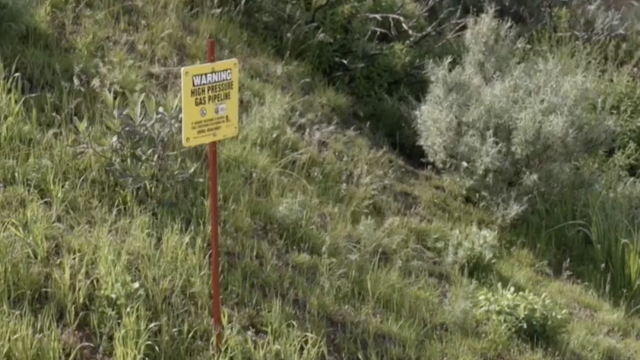When a train derailed and leaked toxic chemicals into the earth in East Palestine,people living thousands of miles away could empathize with what the Ohio community was about to go through.
Eight years ago, the largest gas leak in U.S. history occurred. More than 100,000 tons of methane and other natural gasses escaped from the Aliso Canyon Storage Facility outside of Los Angeles.
"I've been traumatized on multiple levels. I've developed significant, significant complex PTSD and trauma," said Rana, who did not want her last name used in this story. "I can't even open a window when I hear gas blowers. I'm like, "Hold your breath [there's] benzine.'"
The company in charge of the site, Southern California Gas Company, paid up to $1.8 billion in civil lawsuits under the condition it could deny any wrongdoing
"It's painful. Life happens— you can't live in a bubble, but to know it didn't have to happen and to know it was done to you and you know who did it and they're not being held accountable, that's a whole other beast," Rana said.
SEE MORE: East Palestine residents wait in limbo while cleanup continues
An analysis of studies published by the National Institutes of Health found man-made disasters were "associated with significantly higher odds of PTSD than natural disasters." The studies it looked at found survivors of man-made disasters like the Aliso Canyon gas leak or the East Palestine train derailment experienced PTSD in 25% to 75% of cases
"It's a grief process and people are triggered in different ways for different things," said clinical psychologist Dr. Elizabeth Sather.
Sather says, in many cases, the PTSD symptoms can mirror what combat veterans go through since the man-made disasters challenge how safe someone feels in their own home
"No matter what's going on in the world, I can go in my bedroom, my living room, close the door and keep the rest of the world out, but if it impacts your personal environment, it starts to feel as if the world is unsafe everywhere," said Rana. "There's nowhere to go to hide from it and that can make the mental health symptoms much more intense."
A poll by NPR in 2021 found about a third of Americans would rather start somewhere new after a disaster than rebuild.
It's the decision Rana and her husband made when they moved their family more than an hour away from their old home a week after the gas leak. However, the time and distance can't separate Rana from the old pains.
"It's no way to live. I see power lines, I freak out. My mind forever more has been changed," she said.
Trending stories at Scrippsnews.com



